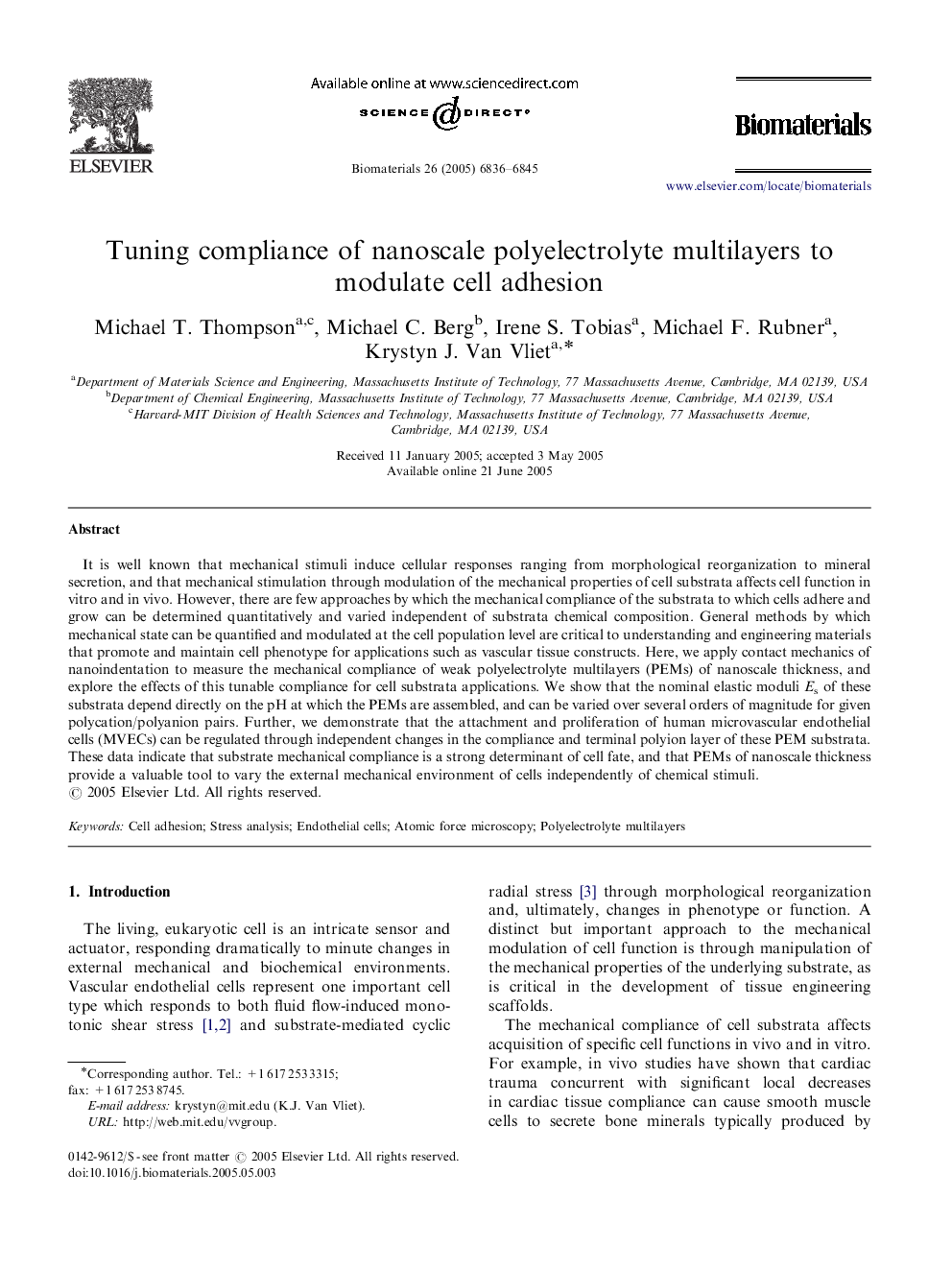| Article ID | Journal | Published Year | Pages | File Type |
|---|---|---|---|---|
| 12440 | Biomaterials | 2005 | 10 Pages |
It is well known that mechanical stimuli induce cellular responses ranging from morphological reorganization to mineral secretion, and that mechanical stimulation through modulation of the mechanical properties of cell substrata affects cell function in vitro and in vivo. However, there are few approaches by which the mechanical compliance of the substrata to which cells adhere and grow can be determined quantitatively and varied independent of substrata chemical composition. General methods by which mechanical state can be quantified and modulated at the cell population level are critical to understanding and engineering materials that promote and maintain cell phenotype for applications such as vascular tissue constructs. Here, we apply contact mechanics of nanoindentation to measure the mechanical compliance of weak polyelectrolyte multilayers (PEMs) of nanoscale thickness, and explore the effects of this tunable compliance for cell substrata applications. We show that the nominal elastic moduli Es of these substrata depend directly on the pH at which the PEMs are assembled, and can be varied over several orders of magnitude for given polycation/polyanion pairs. Further, we demonstrate that the attachment and proliferation of human microvascular endothelial cells (MVECs) can be regulated through independent changes in the compliance and terminal polyion layer of these PEM substrata. These data indicate that substrate mechanical compliance is a strong determinant of cell fate, and that PEMs of nanoscale thickness provide a valuable tool to vary the external mechanical environment of cells independently of chemical stimuli.
